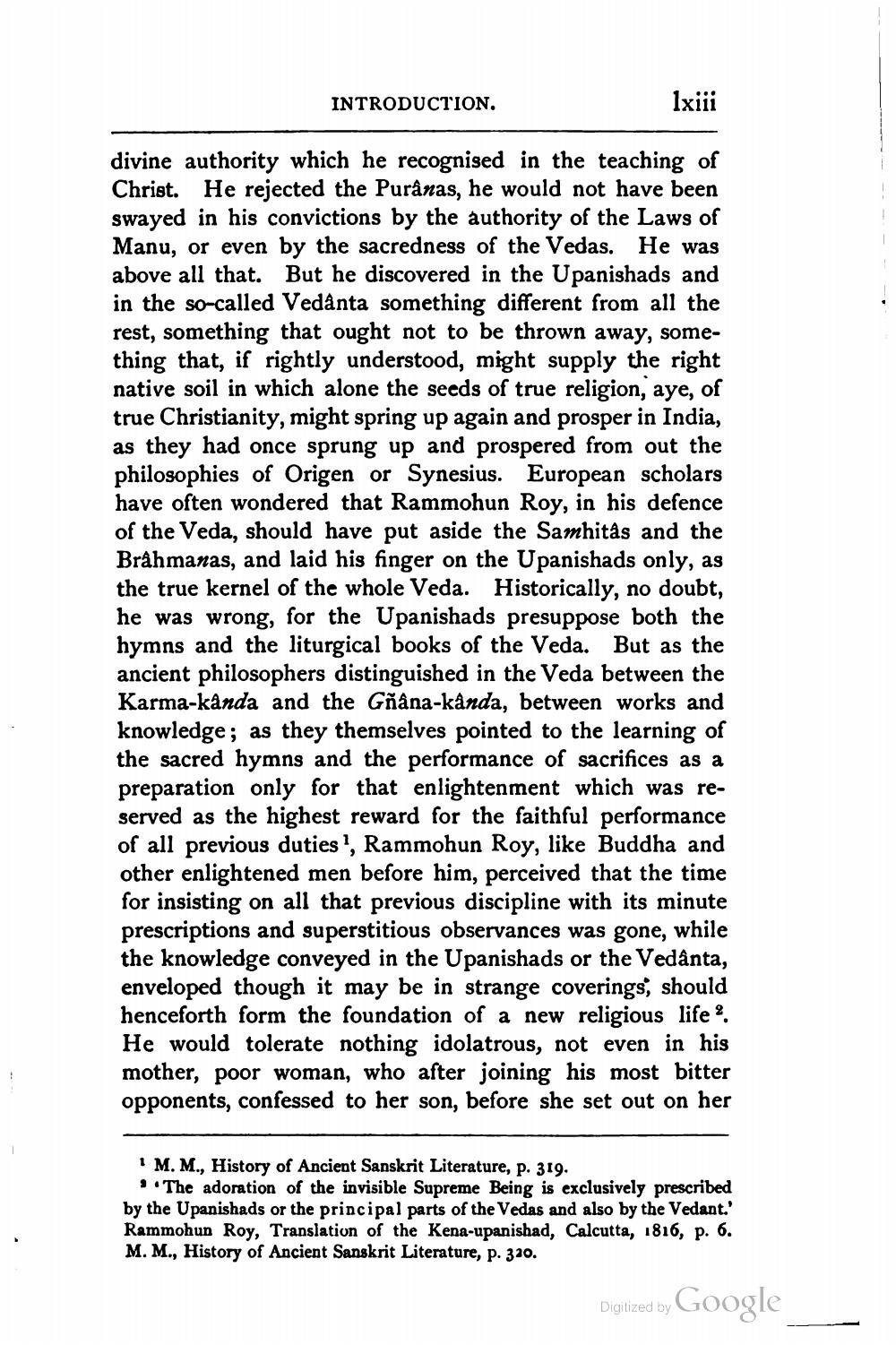________________
INTRODUCTION.
lxiii
divine authority which he recognised in the teaching of Christ. He rejected the Puranas, he would not have been swayed in his convictions by the authority of the Laws of Manu, or even by the sacredness of the Vedas. He was above all that. But he discovered in the Upanishads and in the so-called Vedanta something different from all the rest, something that ought not to be thrown away, something that, if rightly understood, might supply the right native soil in which alone the seeds of true religion, aye, of true Christianity, might spring up again and prosper in India, as they had once sprung up and prospered from out the philosophies of Origen or Synesius. European scholars have often wondered that Rammohun Roy, in his defence of the Veda, should have put aside the Samhitas and the Brahmanas, and laid his finger on the Upanishads only, as the true kernel of the whole Veda. Historically, no doubt, he was wrong, for the Upanishads presuppose both the hymns and the liturgical books of the Veda. But as the ancient philosophers distinguished in the Veda between the Karma-kanda and the Gñâna-kânda, between works and knowledge; as they themselves pointed to the learning of the sacred hymns and the performance of sacrifices as a preparation only for that enlightenment which was reserved as the highest reward for the faithful performance of all previous duties, Rammohun Roy, like Buddha and other enlightened men before him, perceived that the time for insisting on all that previous discipline with its minute prescriptions and superstitious observances was gone, while the knowledge conveyed in the Upanishads or the Vedanta, enveloped though it may be in strange coverings, should henceforth form the foundation of a new religious life 2. He would tolerate nothing idolatrous, not even in his mother, poor woman, who after joining his most bitter opponents, confessed to her son, before she set out on her
" M.M., History of Ancient Sanskrit Literature, p. 319.
• The adoration of the invisible Supreme Being is exclusively prescribed by the Upanishads or the principal parts of the Vedas and also by the Vedant.' Rammohun Roy, Translation of the Kena-upanishad, Calcutta, 1816, p. 6. M. M., History of Ancient Sanskrit Literature, p. 320.
Digitized by Google




